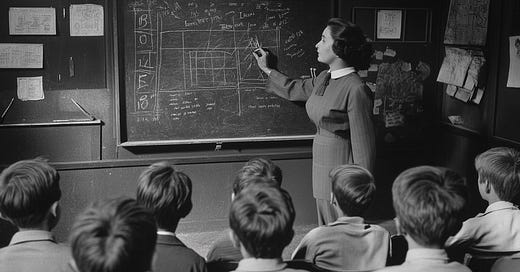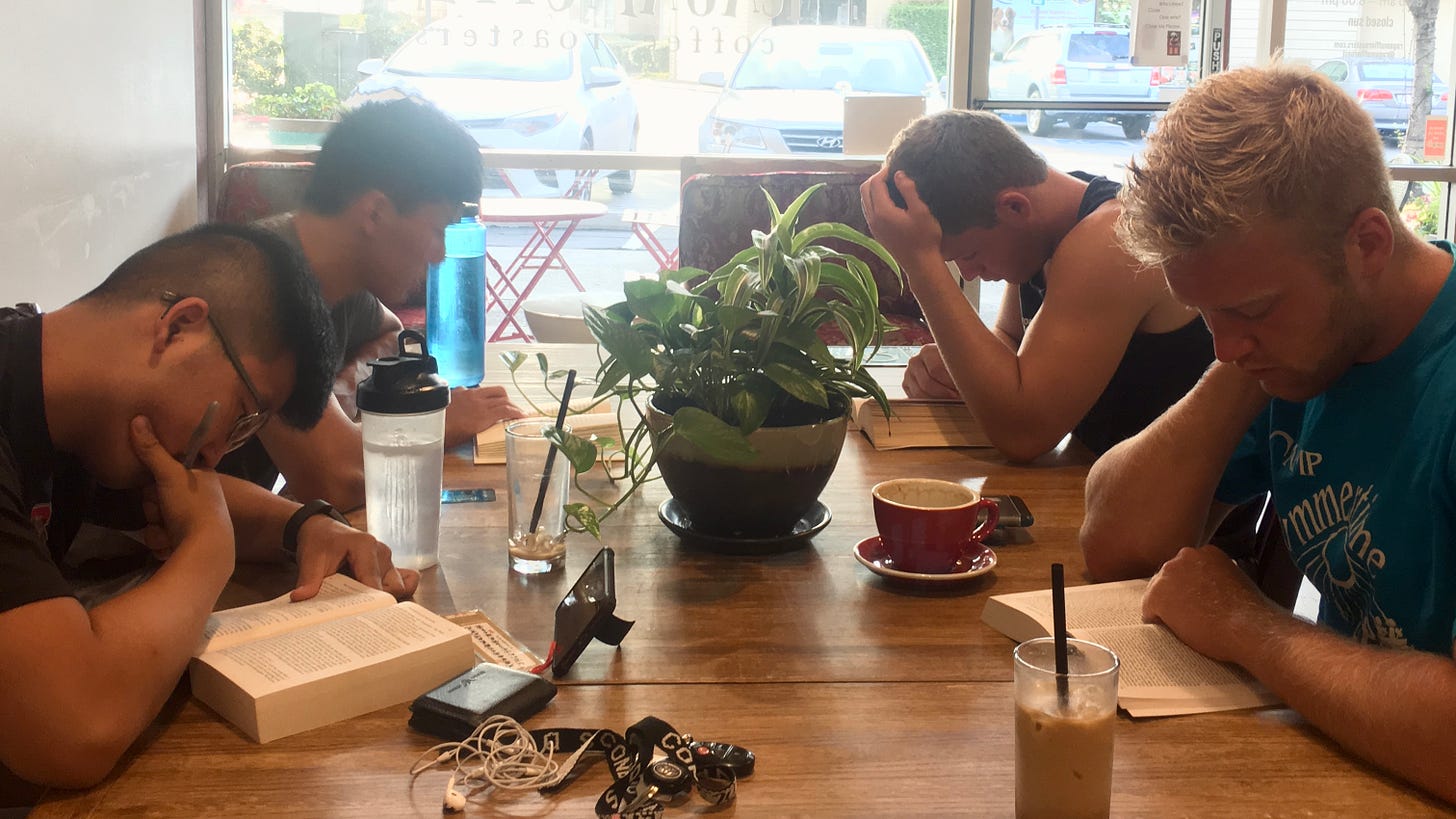
The life hack of growing up with smart friends
Setting a high bar for good ideas lasts a lifetime.
By the time I was 12 I knew I was the least intelligent person in my friend group.
From elementary through high school, I earned the lowest grades among my closest pals. I use “earned” liberally here because, as my parents can attest, I didn’t exactly study hard in those years.
But neither did the kids I spent my time with, and they aced every test.
Two or three of them probably should have skipped several grades early on. I’m glad for many reasons they did not.
One consequence of spending childhood among unusually bright individuals is that you grow accustomed to a certain depth of conversation.
While I often had to sprint to keep up, what made my group so engaging was the constant flow of interesting, novel ideas.
Of course, intelligence at the time did mean achieving higher grades with less effort. More importantly to anyone between the ages of 7 and 17, it manifested as the funniest jokes, sharpest observations and most compelling ideas.
Consciously or not, intelligence sat atop the social hierarchy within our circle.
The most articulate among us (hint: not me) captured attention best, which was what mattered. But we weren’t old enough to think about intelligence like that, so we resorted to quietly comparing grade point averages.
If a genie offered me three wishes at the time, I would have spent one on a higher IQ.
No genie visited, so I entered college — the lowest-ranked university among my friends — self-conscious about my abilities as a student. I didn’t think I was very smart.
Again, as my parents can attest, I never studied in school because of who I hung out with. My friends didn’t, so why should I? The difference was that they could pull it off without ever receiving so much as an A-.
I hated knowing that academic nonchalance was not an effective strategy for me.
In college, suddenly embedded in a new city and social circle, I started studying for the first time ever. I showed up to office hours, joined research groups and read every book I could get my hands on.
I fell in love with school, which made me work hard to excel in it.
My hometown guys showed me the power of raw intelligence in producing high-level work and interesting ideas. I learned in college, however, that while it is helpful it isn’t a precondition.
Spending the first 18 years of my life as the weakest student in a hyper-intelligent bubble had convinced me that intelligence was something you either had or didn’t.
It’s also what allowed me to later give more credence to persistence and effort.
During a philosophy seminar my junior year, my professor handed back an essay with a single comment: “This is very original.”
Not insightful or brilliant or perfect — original!
I don’t remember what I wrote about, yet the moment stuck with me because it taught me that unique ideas were not necessarily born from innate intelligence.
If the opposite were true — that important ideas can only come from the best and brightest — I imagine most people would stop striving altogether once they come across someone more intelligent.
Luckily this isn’t the case. A world in which IQ alone dictated outcomes would resemble something like a caste system.
To be clear, intelligence plays a role in generating novel ideas. But because it’s an inexact alchemy, brainpower isn’t the only ingredient here. Curiosity, for one, seems just as critical.
(Only one of those two can be learned over time.)
Smart friends provide two powerful forcing mechanisms for ambitious individuals.
First, they raise your expectations for what qualifies as “smart.” The friends I grew up with skewed my perception so much that as a kid I questioned whether our teachers were up to task. As an adult I carry the same skepticism toward credentialed professionals.
Second, smart friends impose resourcefulness — you have to figure out how to keep up.
Here in New York, I do everything I can to spend time with people who make me feel out of my depth. It makes me work harder. And I like the competition.
I remain close with my childhood friends to this day. They are still among the most intelligent people I have ever met.
When I was a kid I couldn’t articulate these things.
I’m grateful I grew up with friends who could if you asked.
Have a great weekend everyone,
Phil Rosen
Co-founder and editor-in-chief, Opening Bell Daily







